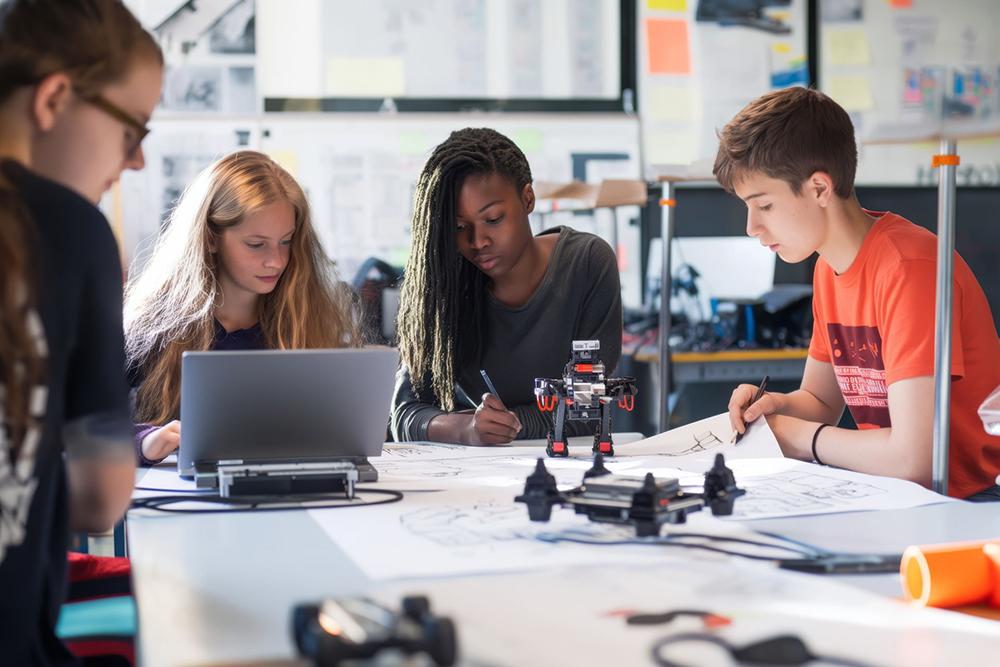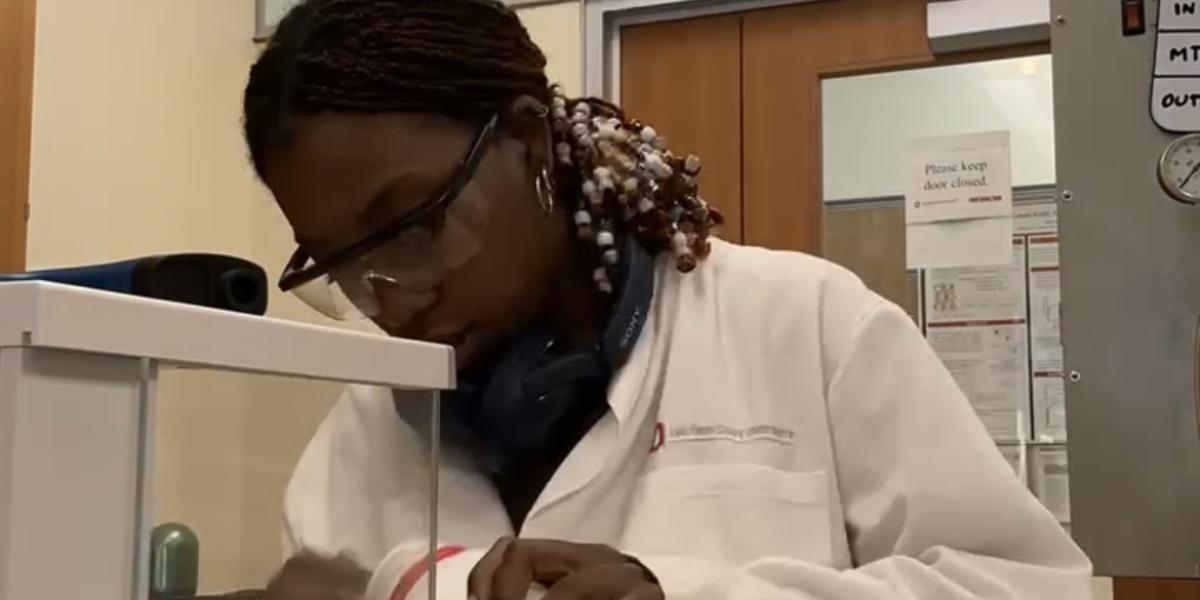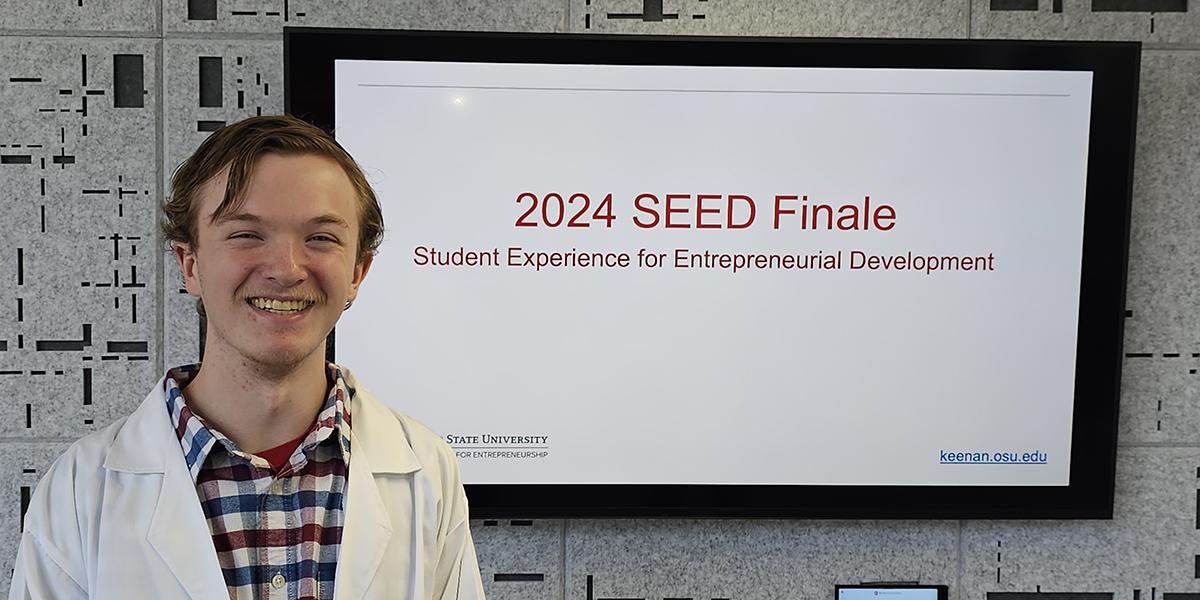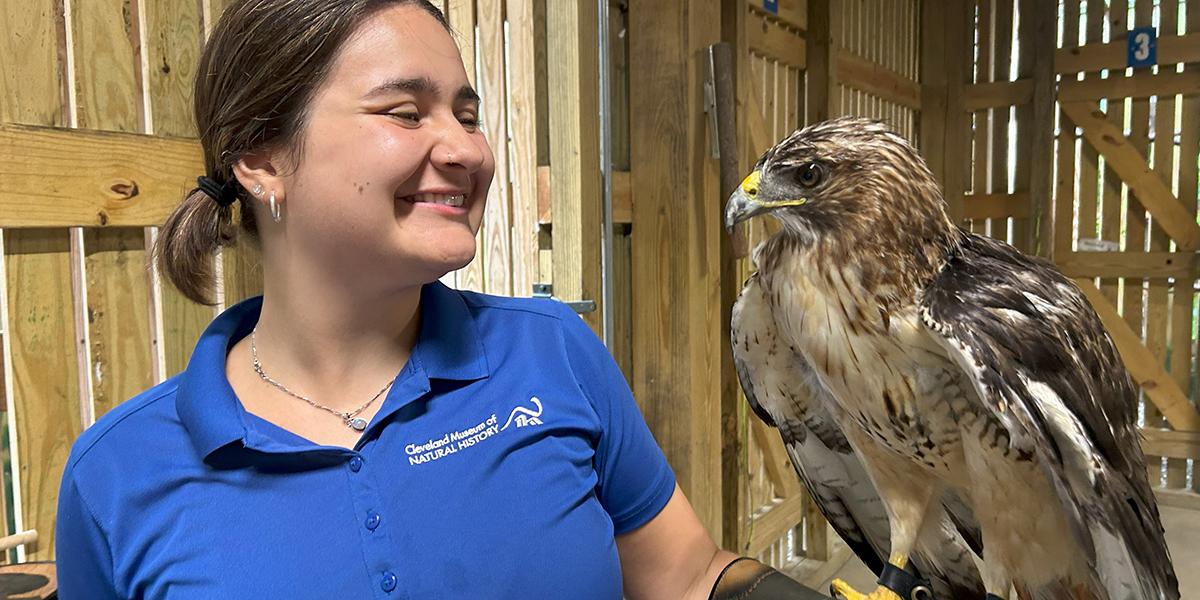STEM Emerging Leaders Fellows
The STEM Emerging Leaders Fellows (SELF) program empowers and equips the next generation of STEM leaders by strengthening pathways to and through science, technology, engineering, and mathematics careers. Through full-tuition scholarships, a supportive community of peers, and intentional programming, the SELF program fosters academic success, leadership development, and inclusive excellence. As part of the Driving Change: Our Inclusive Path Forward initiative, SELF is committed to creating equitable opportunities and cultivating a STEM learning environment where all students thrive.
Benefits
- SELF Scholars will participate in regular programming help them develop the skills and tools they need to successfully transition to Ohio State and to a STEM learning environment.
- Financial Support: Scholarships are provided for the four years of undergraduate study.
- First-Year Early Arrival Program: Residential program enables SELF scholars to network with other STEM scholars, faculty and staff, and to learn strategies and resources for a successful transition.
- Peer Mentors and Community of Support: STEM peers share their knowledge and experience to help SELF scholars navigate Ohio State and create a network of support.
- Academic Support and Success Coaching: Ongoing advising, tutoring, and success coaching support timely graduation.
- Laboratory Research: Research opportunities and laboratory experiences expose students to cutting-edge research.
- Faculty and Industry Mentors: Faculty and industry role models strengthen academic work habits and study skills.
- Professional Development and Career Readiness: Professional development workshops and programming prepare pathways to internships, career opportunities and graduate study.
- Education Abroad and Global Experiences: Study abroad partnerships that integrate the lens of diversity, equity, and inclusion into their curriculum.

Current SELF Scholars
The STEM Emerging Leaders Fellows (SELF) program empowers students to become future leaders in science, technology, engineering, and mathematics (STEM) fields. Their dedication not only enhances their own professional journeys but also inspires and equips the next generation of STEM talent to take the same journey.
Expand the dropdowns below to meet some of our SELF Scholars.

Science is trial and error.
Boil down the lessons painstakingly learned by Mackenzie Hoffman, a second-year biochemistry major, during her summer research experience at The Ohio State University’s Chemical and Biomolecular Engineering (CBEC) Lab, and the most humbling was one she learned each day about the scientific method.
“It was so much trial and error,” said Hoffman, one of the participants in the Stem Emerging Leaders Fellow (SELF) program. “I didn’t get a solid product until a month and half in, and I didn’t get what I wanted until the end of my research.”
At the CBEC lab, Hoffman’s job was to use inorganic crystals to create rare chemical compounds. Those compounds, in turn, can be used as the hosts to create thin films that help modern technology like cellphones, satellites, and radar systems operate more efficiently and effectively.
While Hoffman said she felt “imposter syndrome” initially in her first lab environment, she grew more confident as she gained experience doing the solid-state chemistry experiment. “The actions weren’t as scary as I thought they were going to be,” she said. “It was more basic calculations and a lot of grinding and reheating and just using different instruments. I felt more comfortable as the summer went on.”
Hoffman’s summer research experience was just one aspect of the SELF Scholars program housed in the Office of Diversity and Inclusion. The program is aimed at cultivating the next generation of STEM (science, technology, engineering, and mathematics) leaders by strengthening pipelines through and into careers in science, technology, engineering, and mathematics for students who have experience living or working in diverse environments or who have overcome substantial educational challenges.
Hoffman said her time in the CBEC lab has left her better equipped to handle failure. “I just feel more confident in myself and my work,” she said. “Because even if I’m not going to get it right the first time, I know now that it doesn’t mean I’m not going to get it right at all. And I feel like I understand things more on a molecular level than I did before.”

A better way to detect hard-to-find mold that grows in homes and businesses is the ultimate goal behind research conducted this summer by SELF Scholar Liam Moore.
Moore, a second-year civil engineering major, took a turn this summer at The Ohio State University’s Environmental Quality Lab working on the long-term research project.
His first hands-on experience in a laboratory setting was an eye-opener for Moore, who called it “a big learning curve.” Nonetheless, Moore said the program was a great opportunity for him. “The whole program was really well structured so I feel like it really encouraged students to learn,” he said.
In the lab, Moore’s job was to incubate dust in glass jars containing a salt solution. “It changes the humidity level that the dust is exposed to...then we can take the dust out and extract the RNA which is similar to the DNA of the dust,” he explained.
The goal is to eventually develop a product that gives consumers a reliable test for indicators of mold that they could use to test their basements or other places where mold often grows unchecked. “There’s still a lot of testing that needs to be done before a product could come out,” said Moore. “I find the research really interesting, and I’m thinking about continuing it on into the fall.”
Moore’s summer research experience was just one aspect of the SELF program housed in the Office of Diversity and Inclusion. The program is aimed at cultivating the next generation of STEM (science, technology, engineering, and mathematics) leaders by strengthening pipelines through and into careers in STEM for students who have experience living or working in diverse environments or who have overcome substantial educational challenges.
Moore said his first time conducting research has left him more confident in his abilities. “I think big picture, it just shows you that when you put your mind to it you can do about anything,” he said.

What’s the best way to draw a crowd?
This age-old question was the research topic at hand this summer for Isabel Merriman Velez, a STEM Emerging Leaders Fellows (SELF) student who interned this summer at the Cleveland Museum of Natural History.
The second-year zoology major spent several months gathering data on how well attended wildlife programs at the Cleveland museum were, comparing crowds for pre-announced programs, time periods when a zookeeper was present, and times when no staff members were around. The results showed not much difference between the formal program and when a uniformed zookeeper was present to answer questions, but a big dropoff in interest when no staffers were present.
“The research shows there is value in side time that keepers spend at exhibits informally,” Velez said. “A lot of keepers enjoy education, but it does also take time away from animal care.”
Along with her research, Velez also took part in cleaning, feeding, and training the live wildlife on display at the museum. Both mammals and birds native to Ohio are exhibited at the museum including foxes, coyotes, otters, opossums, bobcats as well as owls and bald eagles. The months spent in a classic zookeeper role only strengthened Velez’s desire to enter the field.
“The thing that makes me the happiest is being a zookeeper, and doing the training with the animals and enriching their lives while helping the public learn about them,” Velez said. “There’s nothing that really gets me going like that.”
Velez’s summer research experience was just one aspect of the SELF scholars program housed in the Office of Diversity and Inclusion. The program is aimed at cultivating the next generation of STEM (science, technology, engineering, and mathematics) leaders by strengthening pipelines through and into careers in science, technology, engineering, and mathematics for students who have experience living or working in diverse environments or who have overcome substantial educational challenges.
While Velez said she loved all of the behind-the-scenes work with the animals, there was one animal she worked with that stole her heart. “There was a red-tailed hawk that had a wing injury,” she said. “I really enjoyed getting to know him, holding him on a glove, and helping him recover.”
SELF
Hale Hall
154 West 12th Avenue
Columbus OH 43210
odi-self@osu.edu
